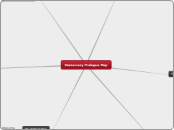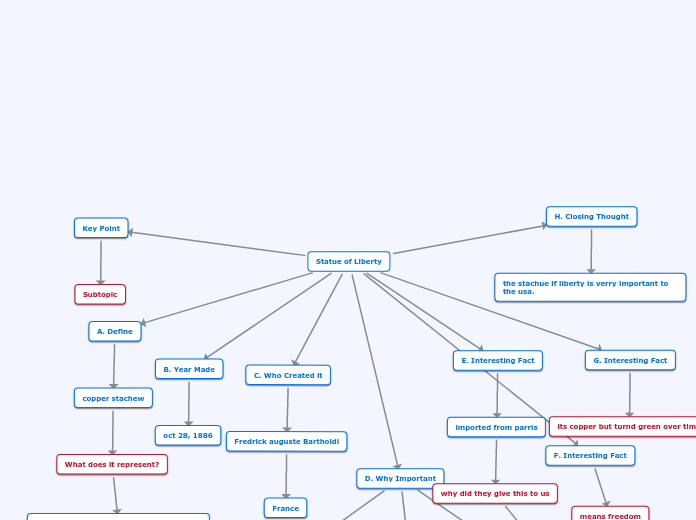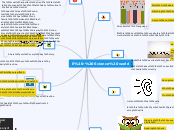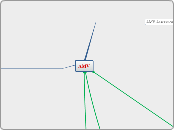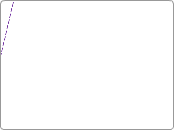Democracy Prologue Map
The Reformation
Students will understand the far-reaching effects of the Protestant Reformation
Acceptable Evidence - Students will orally answer questions posed to them by the teacher
Students will complete a handout on the Reformation
Students will answer questions posed from the teacher
The teacher will lead a discussion about Luther's 95 theses
The Greco-Roman Legacy
Students will understand how democracy began in Greece and Rome, and experienced a resurgence in the 18th century
Acceptable Evidence: Students will complete a section of their Democracy Prologue packet
The students will work in pairs to get a start on their in class assignment - Part 1 of the Democracy Prologue handout . Working in groups promotes cognitive development and thus is very beneficial to the class. It also allows students to assess their own understanding of the content.
While the teacher gives the presentation, the students will fill in the proper blanks in their notes. They will follow along and ask or answer any questions they or the teacher might have. By filling out notes in this fashion, the students will be able to form an understanding of the idea of democracy and how it gained momentum from the Greeks to the Romans.
The teacher will give a SlideRocket presentation discussing the origins of democracy in the Greek and Roman tradition, elaborating on each slide and making sure students have enough time to finish writing. The teacher will also scan the room to make sure students understand. The teacher will use questioning strategies periodically to assess students’ comprehension
The Judeo-Christian Tradition
Students will understand the role of religion in forming of laws and codes.
Acceptable Evidence - Students will create a Venn Diagram comparing and contrasting the various ideas put forth from religious and non-religious sources
The students will work in groups of 2-3 to complete the primary source packet. Working in groups will enhance their cognitive development. ELLs and struggling readers are grouped with strong readers.
Students will fill in the World Religions Chart during the presentation.
The teacher will instruct the students to clear their desks except for the World Religions Chart and a pen or pencil. Then he will commence to give a powerpoint presentation on Judaism, Christianity, and Islam. Students will be instructed to fill in the chart throughout the slide show.
The Renaissance
Students will be able to understand what Europe was like before, during, and after the Renaissance. They will also understand the four main characteristics of the Renaissance and their significance.
Acceptable Evidence - Students will turn in a completed Concept Chart on the Renaissance
Lastly, working in pairs, students will open their textbooks and work on their Renaissance Concept Chart, which will help them understand the various topics included in the Renaissance
Students will follow along and take notes during the presentation
the teacher will assign the night's homework, which students will be able to work on in class. They will be required to complete a Renaissance Concept Chart. This will help students organize the different aspects of the broad subject of the Renaissance, as well as enable them to use critical reading skills. Students will need to read through Chapter 1.1 in their textbooks. Anything they do not finish will be homework. Students will also be able to work in pairs.
The Enlightenment
Students will be able to discuss the role of the Enlightenment in the Democratic Revolutions that took place in the 18th and 19th centuries. They will also be able to understand and compare the revolutions themselves.
Acceptable Evidence - Students will present PowerPoint presentations to the class discussing certain aspects of the Enlightenment
Groups will present their projects to the class for 8-10 minutes
They will decide their groups and plan out their course of action for the project.
The teacher will inform the class of their next assignment, which is a group project. He will explain to them via PowerPoint and an assignment handout that they are to create a slide presentation about 4 aspects of the Enlightenment and Democratic Revolutions, which they will then present to the class. He will tell the students that they have the remainder of class today to begin the planning, and that they will be in the computer lab the next two days. After that they will be required to give an 8-10 minute presentation to the class.
Democracy in England
Students will be able to understand the significance of the change that took place in England with the signing of the Magna Carta and the establishment of a constitutional monarchy.
Acceptable Evidence - Students will complete the appropriate section of their Democracy Prologue packet.
Students will create a Foldable in order to demonstrate their grasp of the content thus far. It will contain some topics not yet covered but students will continue to fill it out as the unit progresses.
Students will open their books to the appropriate chapter and read.
The teacher will assign reading to the class from the prologue section 3
